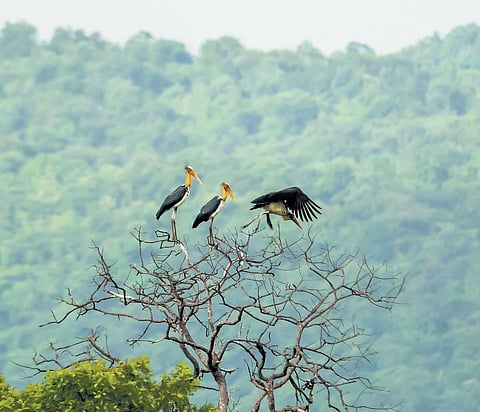

KOZHIKODE: The Kerala State Biodiversity Board (KSBB) has intensified moves to implement Access and Benefit Sharing (ABS) across Kerala to help local communities that have been nurturing biodiversity for decades.
In practical terms, ABS would require all companies that commercially utilise bio-resources to pay benefits ranging from 0.1 to 0.5 per cent of the annual gross ex-factory sale of the products. Local bodies from where such resources are collected will be the direct beneficiaries.
It is estimated that such civic bodies across the state will be able to get around Rs 100 crore per year after ABS is enforced. KSBB member-secretary A V Santhosh Kumar told TNIE that the money will be a no-strings-attached fund that can be utilised for any purpose by the local bodies.
“ABS had come up for discussion at the Earth Summit in Rio de Janeiro in 1992 and came into force in 1993. There were some issues with its implementation across the world, which are now being cleared one by one,” he said.
‘Villagers will become protectors of resources’
The KSBB secretary said the board believes full-fledged implementation of ABS will make villagers themselves the protectors of bio-reserves. As per Section 7 of Biological Diversity Act, 2002, and Section 16 of Kerala Biological Diversity Rule, 2008, the firms concerned should seek KSBB’s approval for getting access to collection of biological resources from Kerala for commercial utilisation.
The permission will act as the ‘certificate of compliance’ by users to access the biological diversity and associated traditional knowledge. KSBB has sent several notices to industries that are commercially utilising various bioresources and requested the Directorate of Industries and Commerce to ensure compliance by them.
KSBB has also requested KSIDC, the nodal agency for implementing ‘Ease of Doing Business’, to include mandated approvals from KSBB in the K- SWIFT portal. A meeting of the steering committee on biodiversity chaired by the chief secretary on September, 28, 2019, had directed ordered enforcement of AB S in Kerala by all entities commercially utilising bio-resources, including public sector industries and cooperative societies and by bidders of sandalwood from Kerala forests.
“There are some legal hurdles that we are trying to clear. We will conduct workshops for all the stakeholders in the coming days,” Kumar said.
Possibilities in Kerala
Marayoor sandalwood, whose sale generated J49.75 crore between 2015 and 2020, marine and inland fisheries and medicinal plants used to prepare ayurveda drugs can be brought under ABS.